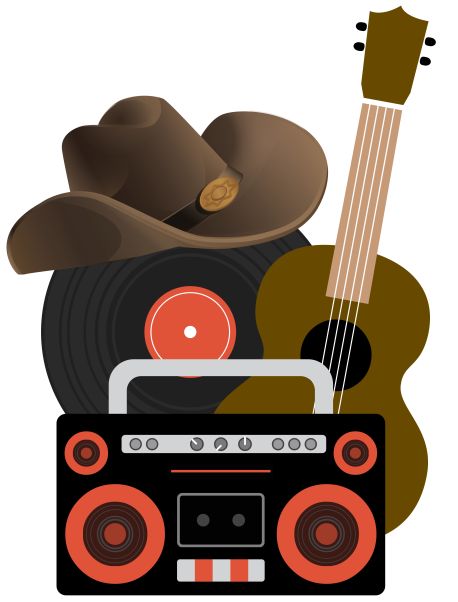
Country and rap are two of the most renowned genres of music in today’s world. Even though they both stand alone, they share similar roots and in some cases the same content. The two styles have collaborated with each other on various occasions throughout time and believe it or not, there is actually a sub-genre that combines both which has been dubbed as “country-rap.”
Although the line between the two genres continues to blur, both have very different reputations. Ask most people what themes pop into their mind when they hear “country music” and you will probably get a mixture of partying, alcohol, love, heartbreak, trucks, drug use, women, family, good vibes and the southern lifestyle. I think we can all agree that some of these subjects are a definite to affect us at some point in our lives. People can relate to it. For the most part, it is upbeat and the message behind it is usually easily identifiable and very vanilla. Think about it: have you ever heard someone in the media say that country music has a negative impact on society? I will wait… Most of the complaints that country music receives today is on how elementary it is and how most of it sounds the same.
Rap is a totally different story. Born in the rough and tough streets of New York City in the 1970’s, rap, or hip-hop culture, was created by low-income African Americans as a way for them to express themselves. Over time it evolved and went from being about mostly partying, into commentary on political and social issues and the lifestyle that the artist leads. With the evolution came more vulgarity and a significant decrease in social consciousness and awareness.
Now, in 2015, it is at the point that you can count the so called “conscious rappers” in the mainstream on two fingers (Kendrick Lamar and J. Cole are supposedly the “saviors” of rap).
As a true rap fanatic that admittedly enjoys this era of rap music, (I think I have a conscience, I am not really sure anymore) I realize that the reputation it has today is a combination of its own fault as well as stereotypes and generalizations. There is no way around it; rap today promotes violence, materialism, drug use and dealing, gang culture, foul language and the degradation of women. It has become more and more controversial, which in turn has led to a strong opposition and detractors. An argument can be made that the majority of rap music that comes out today either has a negative message, or none at all.
That is not all rap though. It still has the power to uplift. It still has the ability to be fun, to make you want to dance. There is still rap that can motivate you to go out and do what you have to do to be successful. If you get beyond all the cursing, messages of trying to better yourself, better your situation and having the back of those that supported you through it all start to show. If rapping is what takes a kid from out of their harsh environment where they are more likely to live a life of crime, or die young, should we not be for it? Should we blame them for rapping about what they come from, what they know, in a culture that prioritizes authenticity? These are things that people fail to realize. Would it be better if they made it out of the hood with an education? Of course. I believe that it has been proven that in some places, like where some of these rappers are from, our education and social systems are failing. Rapping is a skill and if you happen to have it and people like your music, why would you not go with it? Especially if it is one of your only options.
So to answer the question if it is fair that rap has a worse reputation than country music, I honestly believe it is. That does not mean that country music is pure and spotless. I am pretty sure we do not want 1-year-old children crawling around mimicking “Honky Tonk Badonkadonk.”
If rap wants a better rep, it starts with producing more meaningful music and that is the bottom line.


